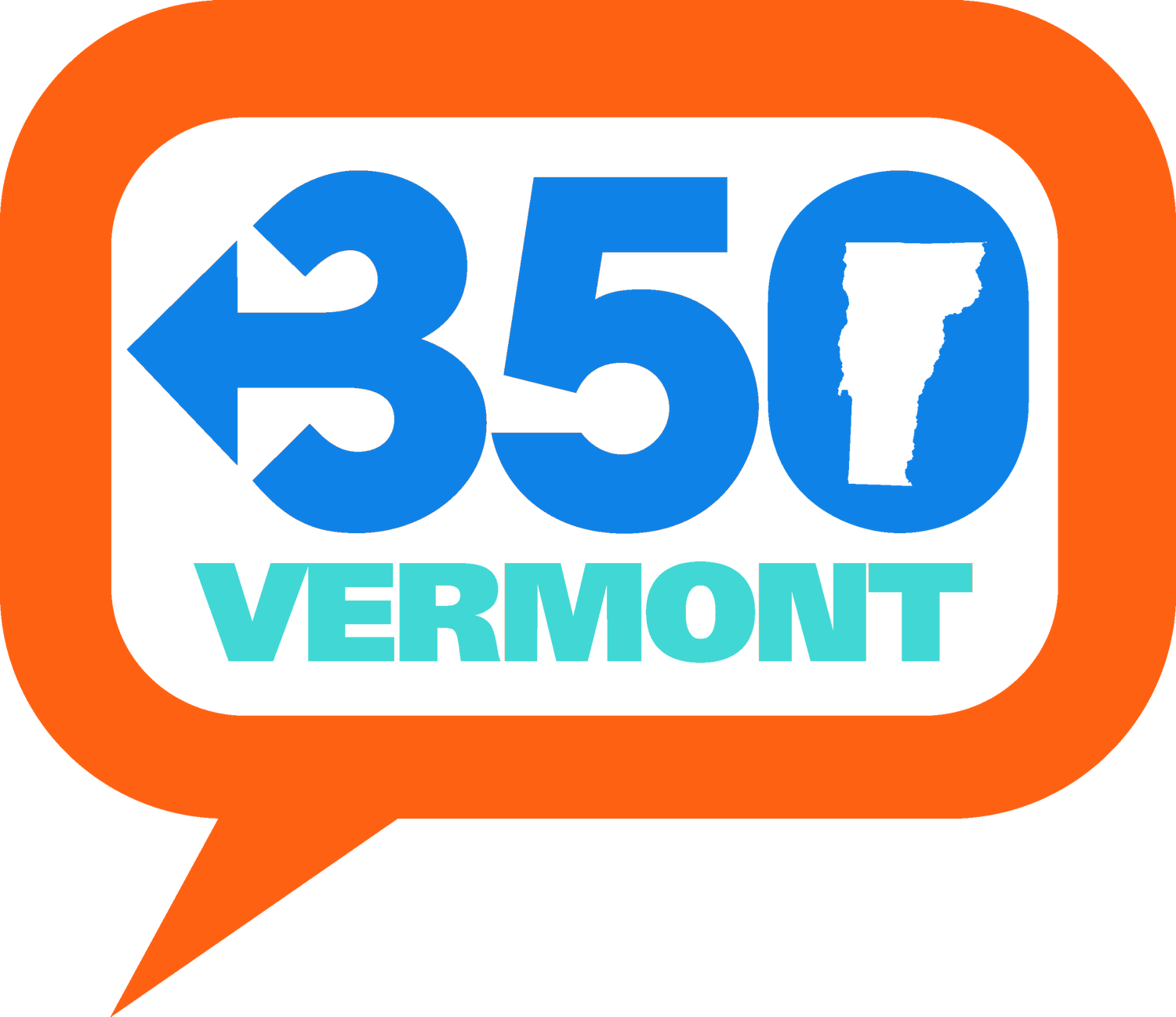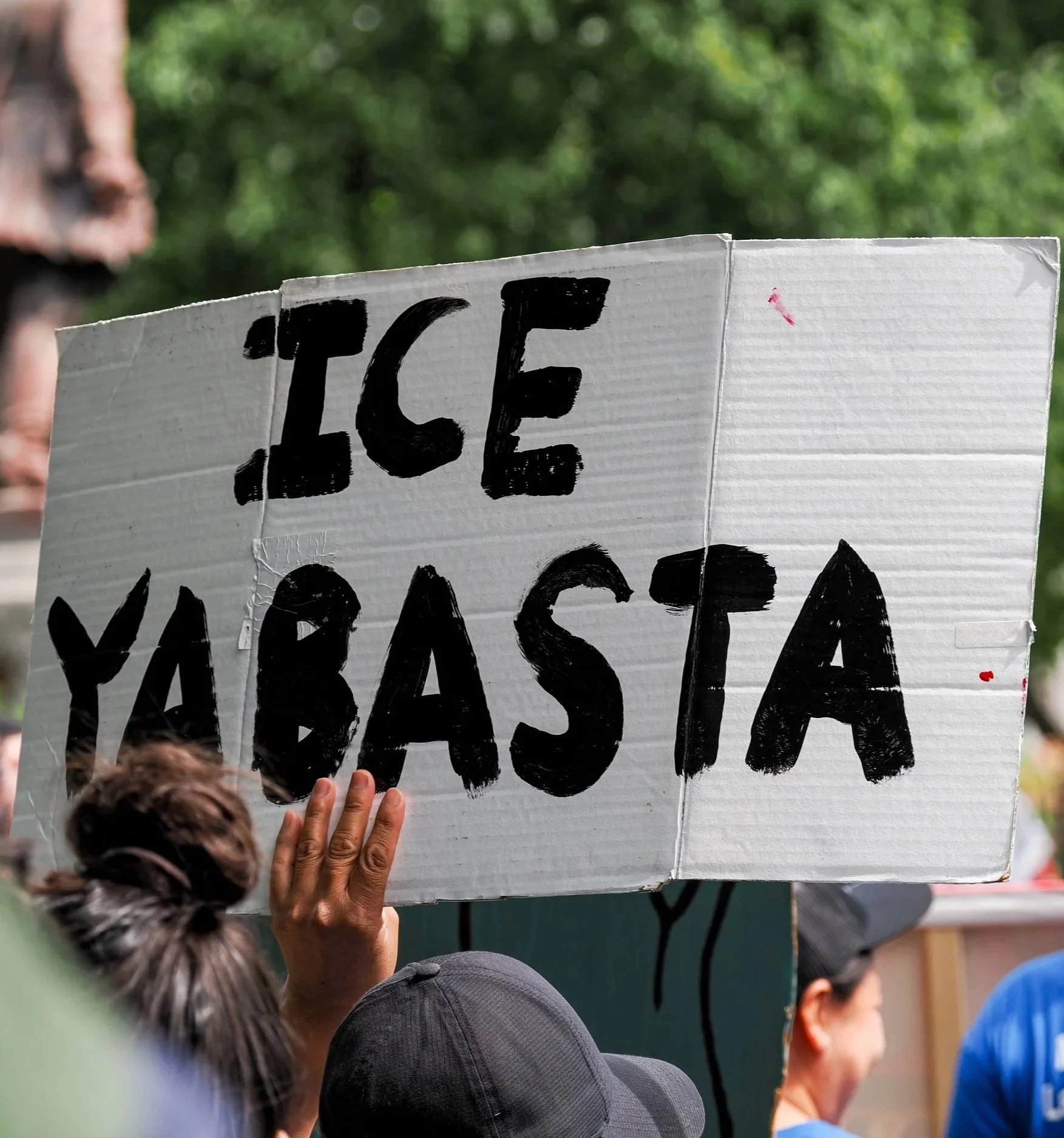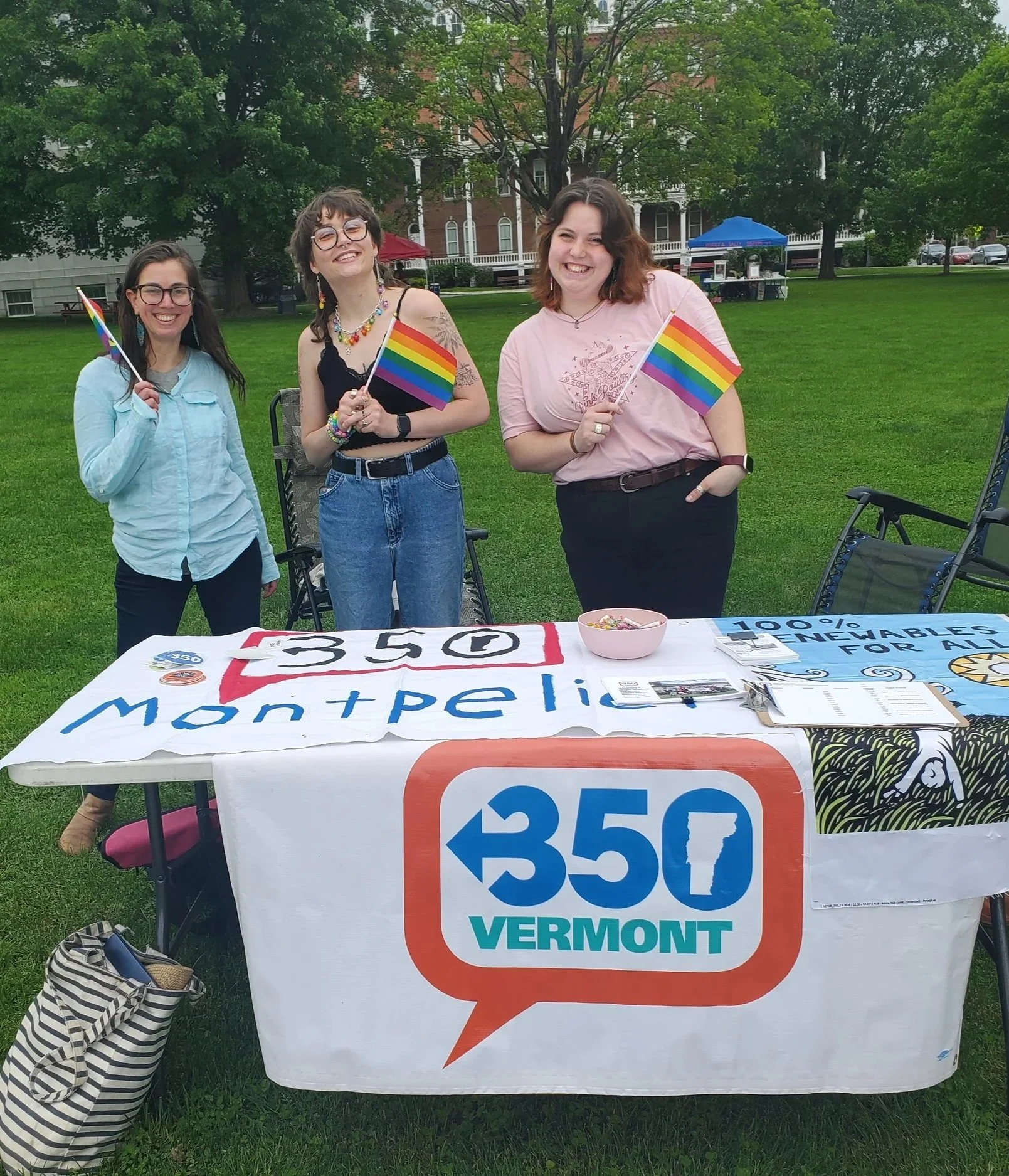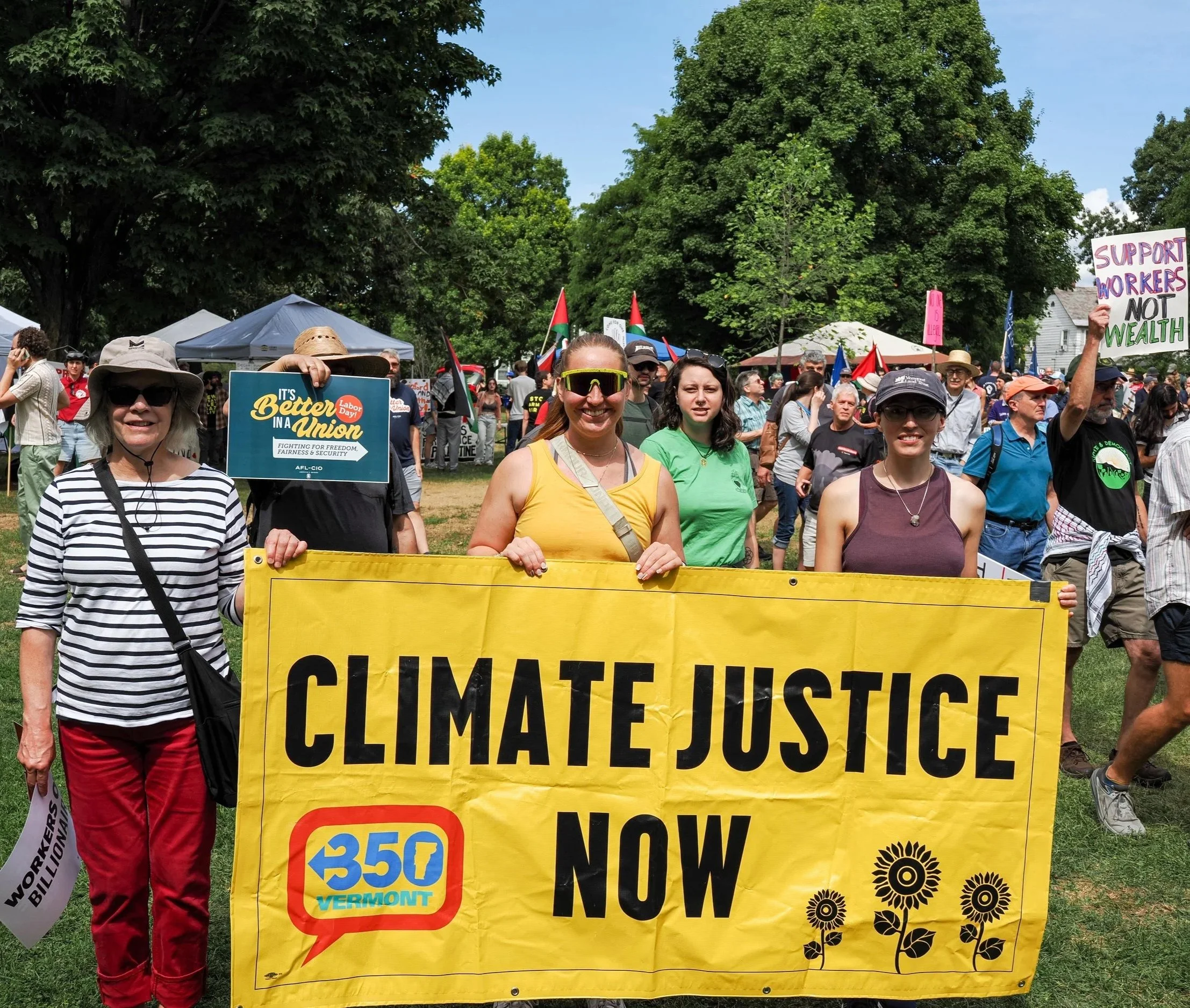Solidarity
Our movement is most likely to succeed when we stand together with others against oppression, advocating for the needs of all people.
Solidarity: What & Why
Solidarity means standing up for and with all our neighbors. It is the foundation of our collective power and our collective safety. If we fail to stand up for our neighbors, who will stand up when someone comes for us?
Throughout history, governments and political leaders have used race, class, gender, and culture to divide us, peddling the lie that our problems are the fault of immigrants, or Black people, or trans people. These tactics of division distract us from the real problem: that a few people at the top are taking far more than their fair share, destroying our world in the process and leaving the rest of us to suffer the consequences.
➡ Standing in solidarity is a moral choice, but also a strategic one. We are most likely to succeed when we stand together against oppression, advocating for the needs of all people.
Solidarity & Climate Impacts
Climate change doesn't affect everyone equally. Many countries in the Global South lie in heat-stressed regions and lack the capacity to adapt or invest in costly mitigation strategies. Their populations are more vulnerable to the effects of extreme heat, including crop failures, extended drought and desertification, and the health risks associated with heat exposure.
In the United States, meanwhile, climate change has affected low-income communities and people of color disproportionately. These populations are more likely to live in neighborhoods without shade and leaf cover and to live in buildings without air conditioning or good insulation. They are more likely to depend on old, degraded infrastructure that is vulnerable to climate disruption, and to live close to industrial facilities whose pollutants will contaminate their neighborhoods and homes during floods (which climate change is making more frequent and more severe). They are also more likely to work outdoors, exposed to the sun and heat. Scholars have described these disparities as the “climate gap.”
➡ At 350Vermont, we consider it part of addressing the climate crisis to stand in solidarity with those most affected. True climate solutions will make it possible for all of us to thrive.
Solidarity at 350VT
We share resources: Each year, we redistribute 5% of our fundraising to a BIPOC-led organization working for justice in Vermont. Read more about our Solidarity Fund here.
We educate our base about the connection between climate justice and social justice:
Monthly e-blasts connecting the climate crisis with social justice issues, including further resources and specific action steps people can take. (Sign up!)
Workshops, trainings, and discussions.
We show up: Many organizations in Vermont are working for a just and thriving world. We share and amplify their work through action alerts and social media, and we encourage our local groups to participate in their rallies and actions.



